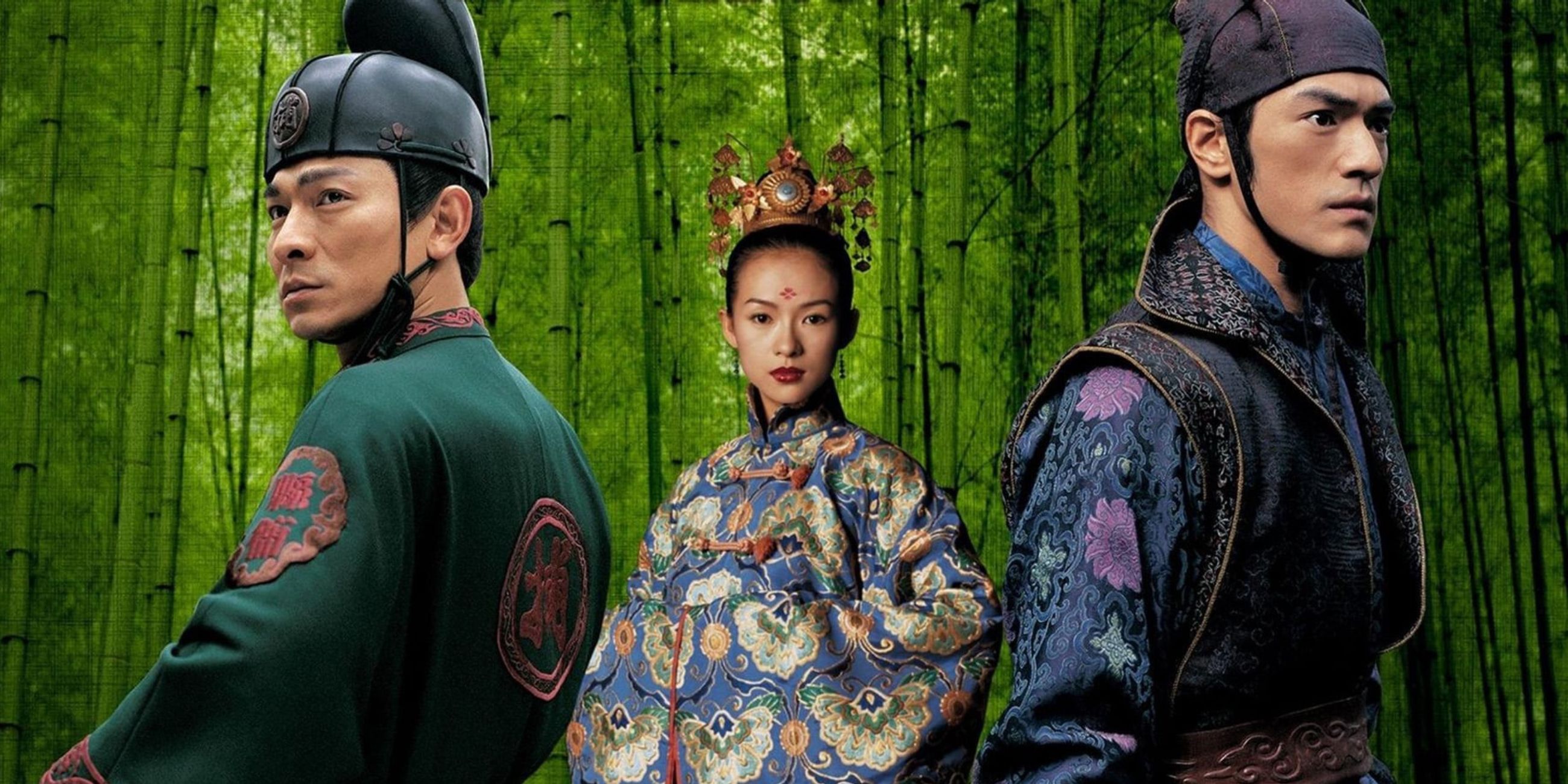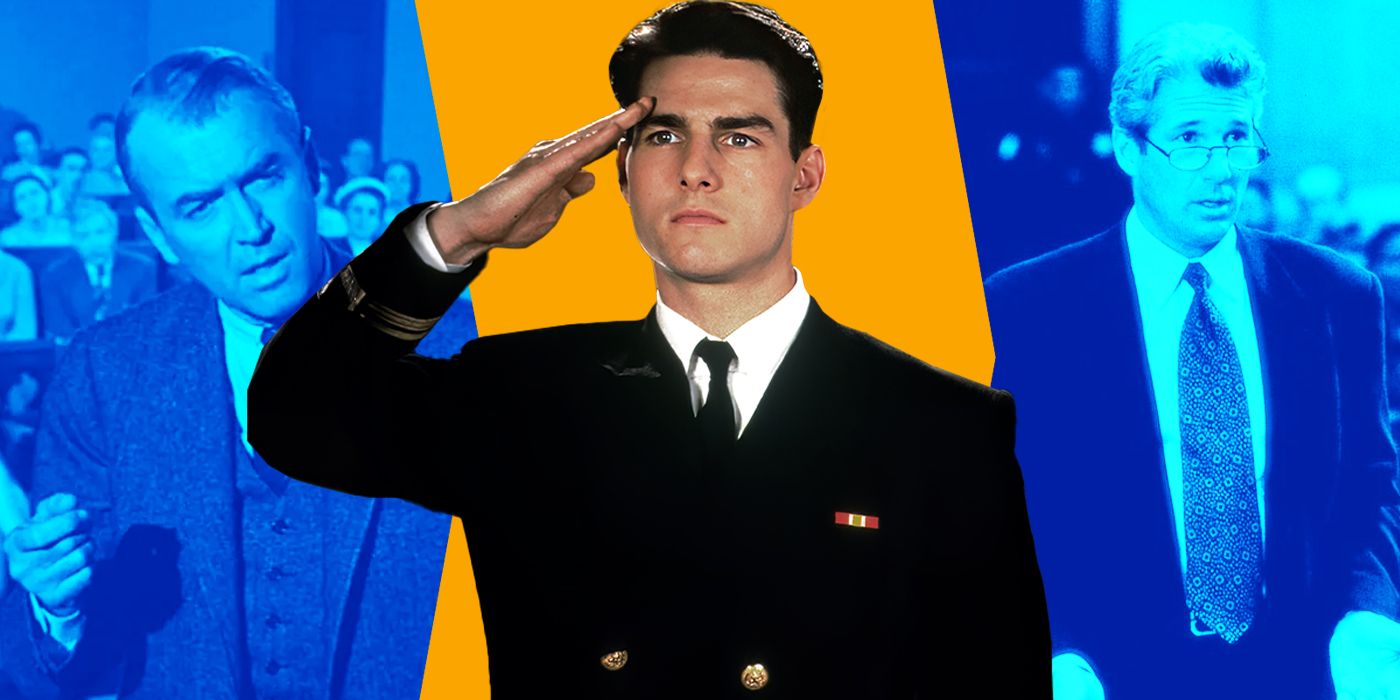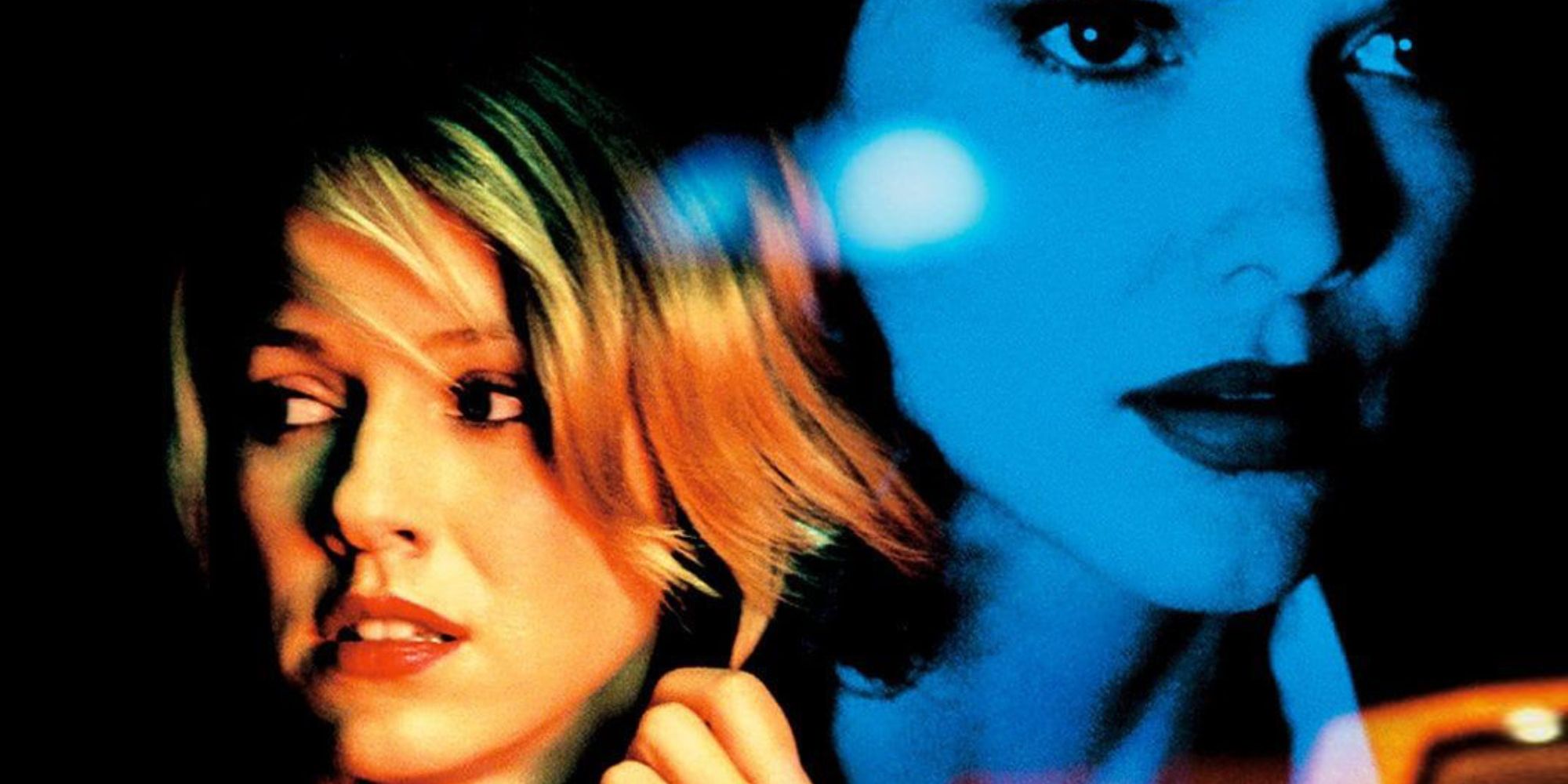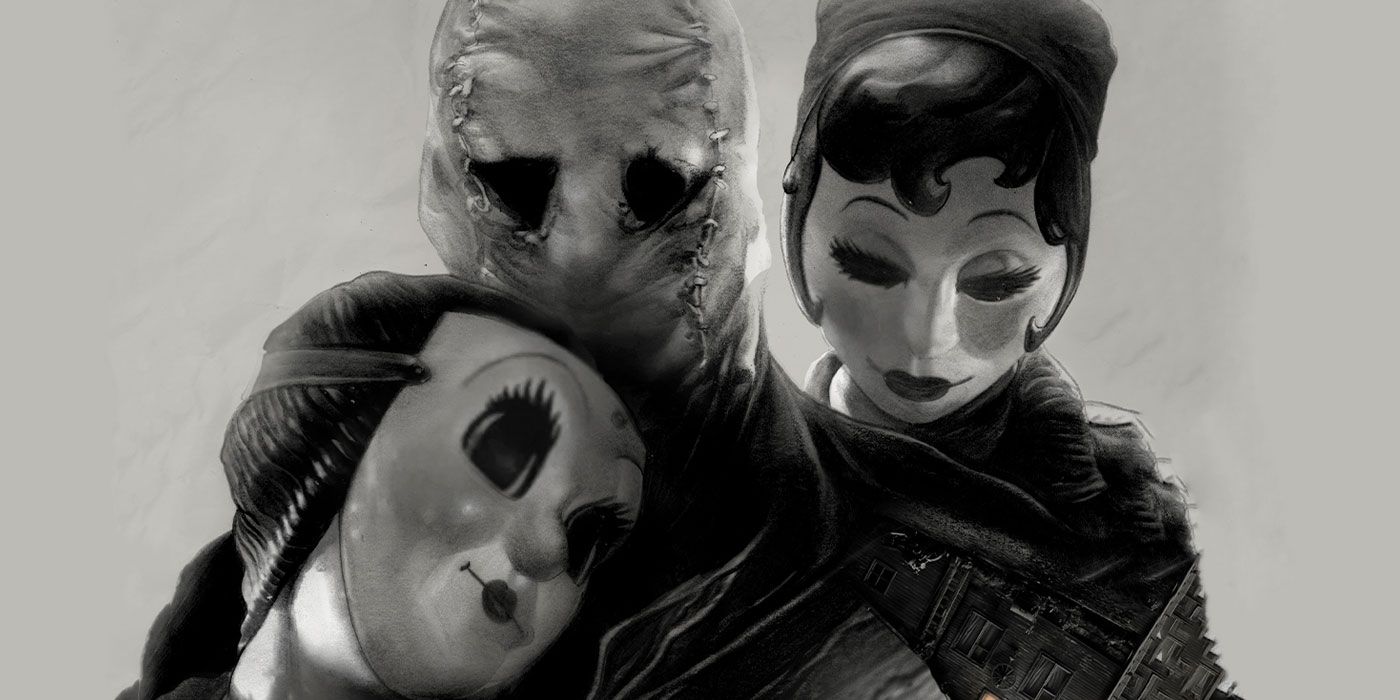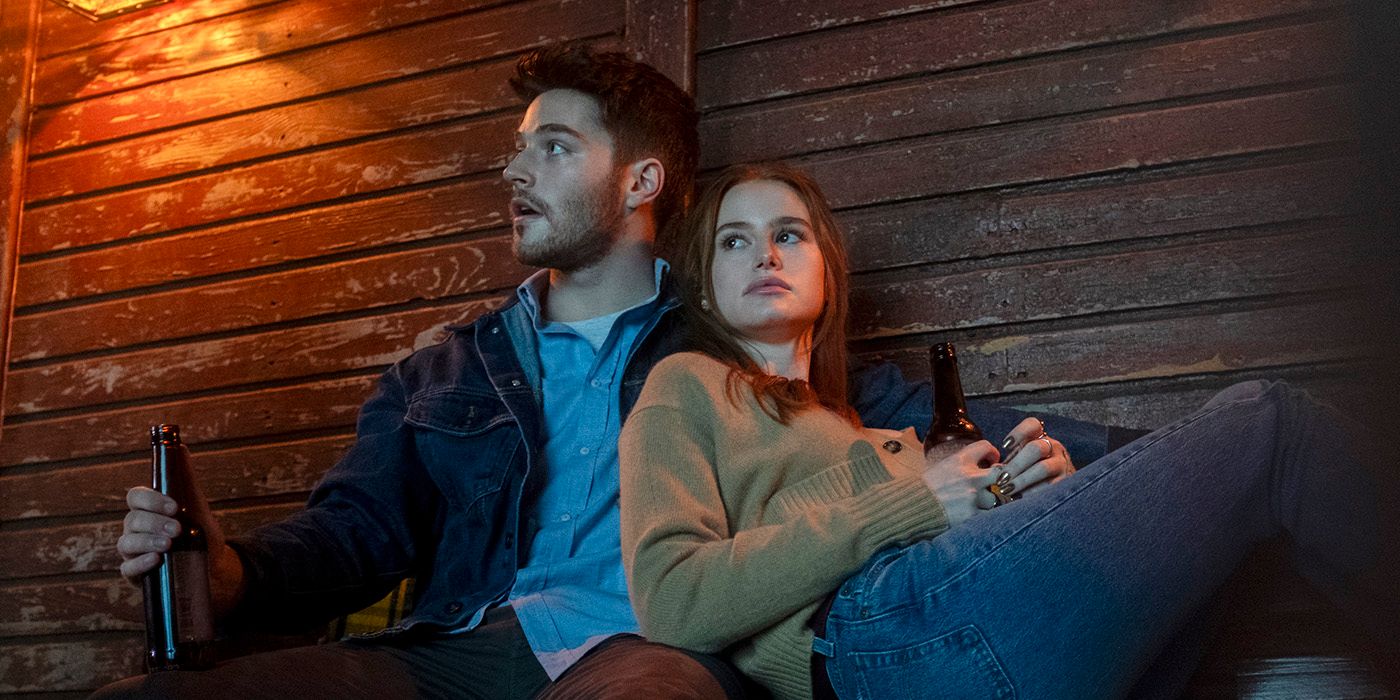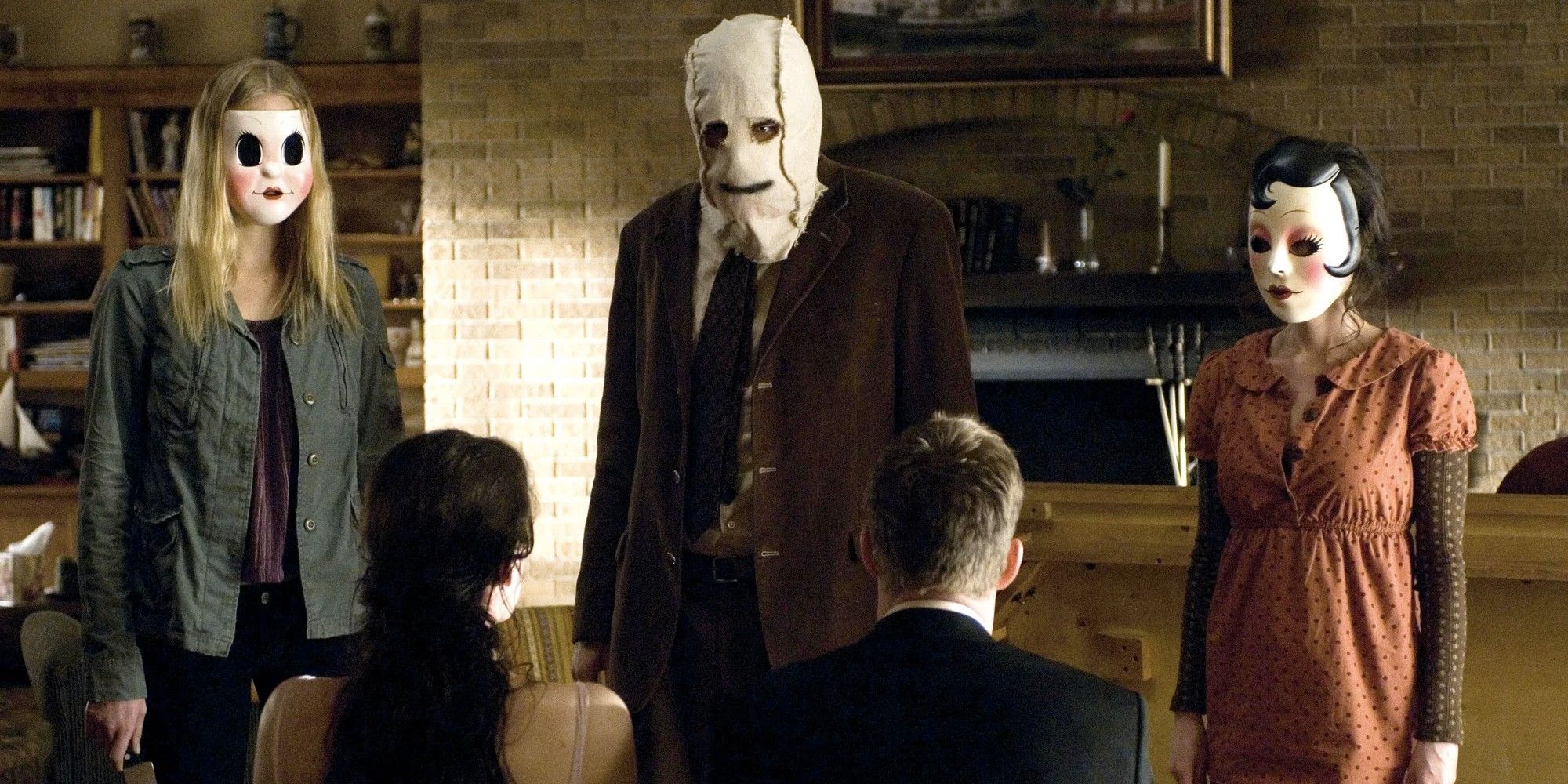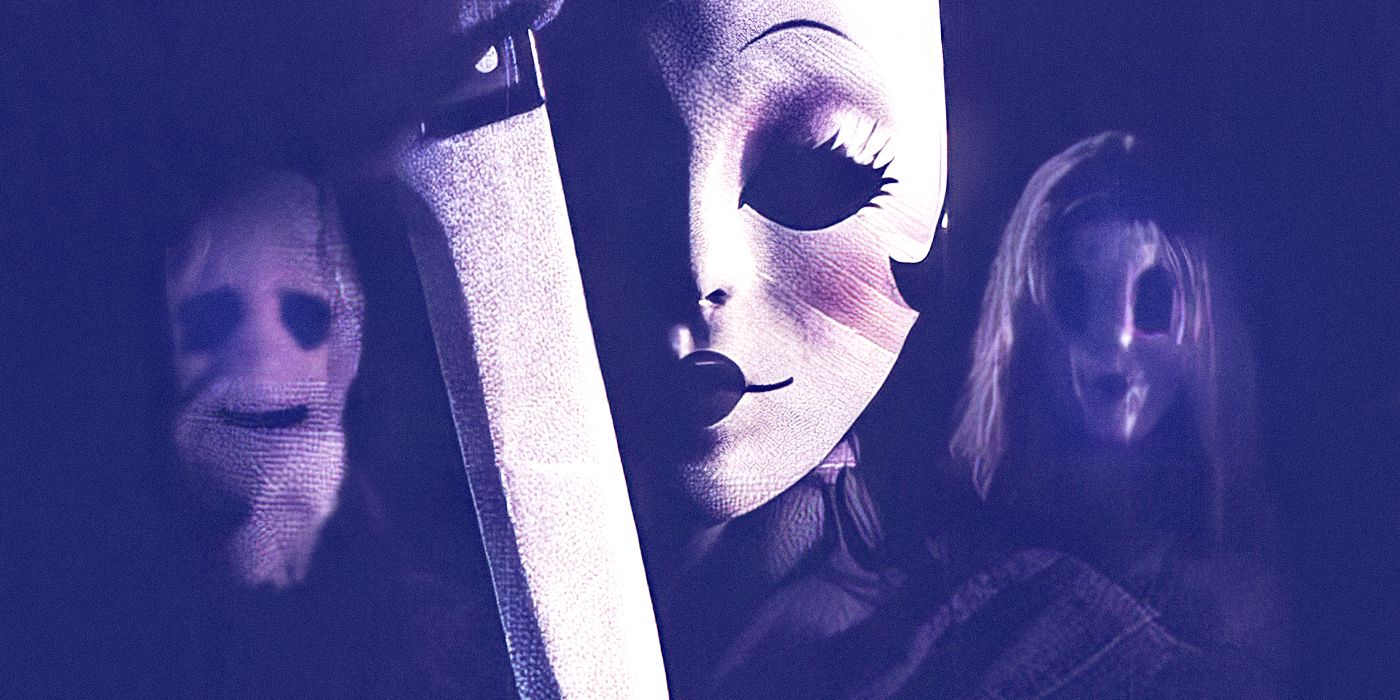The Big Picture
- Director Renny Harlin is bringing back The Strangers with a brand-new trilogy starring Madelaine Petsch.
- Chapter 1 is a home invasion story similar to the 2008 original, but the second movie gets more epic and the third one, even more so.
- While at NYCC 2023, Harlin and producer Courtney Solomon sat down with Collider's Perri Nemiroff to discuss the development and making of the films.
In 2008, writer-director Bryan Bertino’s home invasion horror, The Strangers, messed with a lot of folks’ heads. For an hour and a half audiences were wrapped up in tension as Liv Tyler and Scott Speedman were terrorized by a trio of masked killers known only as Man in Mask (Kip Weeks), Dollface (Gemma Ward), and Pin-Up Girl (Laura Margolis). The original script inspired a sequel almost immediately, and due to difficulties in development The Strangers: Prey at Night, co-written by Bertino, was released ten years later to continue the senseless slayings with a slasher spin, yet still no explanation as to why.
The Strangers is notorious for the killers’ unsettling reasoning, “Because you were home.” Now, director Renny Harlin is going to explore that chilling motivation in his reimagined trilogy, starting with The Strangers: Chapter 1, starring Madelaine Petsch. In the first film of the three, Maya (Petsch) is on a cross-country road trip with her boyfriend, Ryan (Froy Gutierrez), when their car breaks down in Venus, Oregon. With no other options, they find an Airbnb for the night where unimaginable horrors await them.
While on the ground at this year’s New York Comic-Con, Collider's Perri Nemiroff spoke with Harlin and producer Courtney Solomon about their vision for the forthcoming trilogy. Find out why their reimagining requires a trilogy, how Petsch and Guiterrez’s dynamics had to change from the original film’s, why they wanted to revisit The Strangers' universe in this way, and how Harlin used A Nightmare on Elm Street 4: The Dream Master as inspiration for crafting a new ending. The two of them also share how Petsch was essential in the evolution of the story, saying she “was the center of it all,” so much so she was made an executive producer. They tease the second and third films’ story arcs, the killers’ origins and tons more. Check out Perri’s full chat with Harlin and Solomon in the transcript below.
PERRI NEMIROFF: Renny, how was this idea pitched to you when it first came your way? Did you immediately know that it was going to be a trilogy and not a single movie?
RENNY HARLIN: Courtney called me and sent me a file of the script, and I could be now romanticizing this a little bit, but my recollection is that you didn't exactly explain to me that it's three movies. [Courtney] just asked me if I knew the original, if I was interested, and I said, “I love the original. What's going on?” And you were kind of like, “Well, you should read this thing,” and then I opened the file and it's 280 pages long. I'm like, “What the heck?” I start reading it and I can't put it down. It took me, I think, nine hours to read it and then I talked to him again and then he explained the whole concept to me, and I said, “This is genius.” This has never been done before. We really looked at it like one giant epic movie that is going to be made into three chapters, but for us it was one huge story and it was really a brainchild of his.
COURTNEY SOLOMON: Imagine doing that same thing, by the way, to a whole bunch of actors' agents because he was the easy one. [Laughs]
I’ll follow up on that. A lot of times when we hear, “They're going to make a trilogy before having released one good film,” everyone goes, “Hold on. Make one good movie first!” What was it about the material that you were sent that convinced you that, yes, it is worth committing to the trilogy before releasing a single film?
SOLOMON: So trilogy is your operative word here, and technically it is, so you're correct, but it was one big story. So when it was brought to me in the first place, I was like, “I don't really want to do a remake of The Strangers,” because, I don't know, that just doesn't seem right to me. It's a good film, it has its own place in horror history, I don't want to do that, you know? So then I thought of a bigger idea that became a story that goes full circle. I thought to myself, “It's one big movie, right? But it's too big to actually release it as one movie, so then we need to make it into three chapters.” So it's because of the story we wanted to tell. So in this particular instance of this, it's not for, like, mercantile or financial reasons or whatever that we did that. There were some benefits budget-wise, but it wasn't that, it was the story we wanted to tell in the first place would just make too long a movie all as one.
I want to follow up on the actor pitch thing. How do you have to reshape your typical pitch to an actor when you're pitching three films instead of one?
SOLOMON: “This is gonna be really hard.” [Laughs] Start there. I mean, we refined our pitch to basically say, “...but think of it as one giant movie.” So it was sort of the same pitch. We're breaking it into three parts, but it is a big amount of arcs that you have to go through and there's a lot of work that you have to do. The biggest first pitch was to get them to actually read a 280-page script. It’s hard enough to get an actor to read a regular script, forget a 280-page script, right? But I think our passion that we had for it once we reunited infused them with passion to go on the adventure and the journey with us.
But we weren't trying to make a trilogy to sort of jump ahead of ourselves. When you see it, you’ll go, “Oh, I get it. Everything they said is true. It's one giant story.” I sort of looked at it more like a season of television, if that makes sense to you. We don't have 10 episodes, but you keep watching each episode. Story and character develops episode by episode by episode and then resolves for the season by the end and leaves certain questions at the end.
I respect that thinking there.
Renny, I love hearing about how things can evolve from script to screen, so what would you say is the biggest difference between the 200+ page script you were originally presented and what we'll ultimately see in the finished films?
HARLIN: Well, the biggest difference is that once we got together and hired Madelaine to play our lead character, we became this inseparable trio and our vision together became more and more clear day by day as we were shooting the movie. So, the character developed and because it is all character-driven the whole movie and the whole story developed and evolved. It's not at all that I'm trying to, in any way, take credit for it, but it's our collaboration, I think, that really took the movie to another level as we saw how it was coming together. Huge credit, of course, goes to Mads, who was the center of it all. And like Courtney earlier mentioned, for example, the end of the third movie became completely different. It's not like the script wasn't great to begin with, but it's one thing to be on the set and be with the actors and live with the characters week after week compared to the writer being in their office and writing something that seems to work well. But when you see it evolve, some thing's just become crystal clear to you, and we, together, thought, “There's no way the movie is gonna end the way it's written. We have to develop it, we have to create something completely different because now we know who these people are and how this movie progresses, where the tension, where the emotion, where the mystery comes from.” And so it really was a living beast that was being rewritten all through the shoot.
I'm always here to sing Madelaine’s praises! Can you tell me something about her that creates a one-of-a-kind actor-director collaboration, something about her that you've never experienced with any other actor you've worked with?
HARLIN: Well, I can say that I’ve never experienced this, but I think that her intellect is on a whole other level. You have to have your game face on and be at the top of your game because she will always challenge you not, not in a negative way, but she will question things. You know that you're not gonna show up if you haven't figured out every possible thing, and most likely arrived in the same conclusion that she has, because if you really think about it, it's kind of a natural progression of the character and the story. It was just her determination. I can't say that I've never seen anything like this with any actor, but she is really in a class of her own in terms of her dedication, determination, [and] intelligence. One day I just said to her, because almost all of her scenes are emotional scenes on different levels, she had so many scenes where she has to suffer physically and mentally and she has to cry and everything, and one day I just said to her, “I just can't believe that you can just bring tears like that. What is your technique?”
SOLOMON: They’re not the same tears.
HARLIN: No, not at all.
SOLOMON: There's like 22 different versions of the tears. You can have one little teardrop from here, you can have, like you just saw in there, two drops. So they're appropriate to the emotion that's being expressed. I would add to what Renny’s saying is, like, [her] work ethic in my experience, and Renny’s had more experience than I have—I'm going to catch up—unparalleled in my experience. I mean, between producing and directing, I've probably worked with 12 or 13 Oscar-winners and I would say that her work ethic, preparation—and I'm putting her in a real high class there—surpassed all of them. And I'm not even saying it just for this movie, I'm just saying that's who she is. She can't change who she is. As much as I love her, she's super annoying in a good way. I had to use that word because she's like, “Well, should we really use it?” She's talking about things that go beyond, and so much so, and we worked so much on the script and she contributed so much more and knew it so much with us than being an actor, that actually about three quarters of the way during the shoot I made her an executive producer. She wasn't an executive producer when we signed her up for the movie, but she had contributed so much more along the way that it felt it was earned. She has aspirations for producing her own material as she goes forward, and so that speaks volumes all by itself.
I've got very high hopes she's going to crush it in that role.
To tease the main characters a little further, what can you tell us about the status of their relationship and maybe how it influences how they behave and the choices they make in this horrific situation?
HARLIN: I don't know what you want to reveal.
SOLOMON: What I will reveal is that in the original movie, Scott Speedman and Liv Tyler had a certain relationship which we're all familiar with, which had a lot of animosity going on, obviously, because of her denial for his proposal. So, we all remember that. That's not what we did with these characters because, also, we have the context of a much bigger thing. Also, it's 15 years later so the audience is different and the nature of relationships between men and women is different, and so we updated for that and accordingly for the story, is what I'll tell you. So it's not the same dynamic. It's actually a different dynamic, purposely so, that also helps with the entire journey of the whole story, obviously. The dynamic is different and changed, appropriately so, in a good way, I feel like, for where we live right now. Would you say that's accurate?
HARLIN: Absolutely. And I hope I'm not saying too much, but I want to say that by the end of the first movie, the status of their relationship has a huge impact on what we experienced.
SOLOMON: Correct.
I have a feeling I know the answer to this question, but just to get it straight from you guys, this isn't a shared universe situation, right? The Scott Speedman/Liv Tyler incident didn't happen in the same world that this movie takes place in, right?
SOLOMON: No, no, no. So, in so much as a reboot, we're taking the original movie and starting again so we can tell you the full story of what happened. That was the only way to do it. It wasn't like The Strangers: Prey at Night where we just make another story in The Strangers universe, which I know some people are fans of. That's not at all what I wanted to do when I got this material. I wanted to tell a whole different Strangers story stemming from the first one and staying in that vernacular with those characters.
Makes sense. I have read that the first movie is fairly in line with the original Strangers, but then Chapters 2 and 3 have a different feel. It's from her perspective, but it explores something different in a sense, so can you kind of tease how the movies will feel different tonally and also how the scares might change from 1 to 2 to 3?
HARLIN: Well, I like to say that if the first movie is quite intimate, because it basically is a home invasion story, the second movie gets more epic and the third one even more epic. But not at all because bigger things happen, but because on an emotional level and psychologically, it just gets so much more complex, and the journey just takes different paths that you might not expect, but always staying in that same feeling of reality. Like you said, that was our goal that it's all seen from her perspective, and even more after the first movie. We really dive into her mind. The way the visual language of the movie develops and the sound and music and everything is to really put the audience into her point of view of the world and her perspective and her emotional status of everything that’s going on.
SOLOMON: And I would say in the second one, too, sometimes you don't know if what she's seen is what she's really seeing, right? So, that's also a big aspect of what changes in movie two. And as Renny said, the whole tone of each of these movies change, but it becomes satisfying on two levels. So, it's horror in a different way, the second one, is what I always said when we were doing it, right? Because it's the horror of, “What if this shit was really happening to you?” And that's the whole tone of the movie. So it's not trying to make you jumpscare every five minutes or something like that. Instead, it's taking you through a character journey that is entirely raw and real and brutal, right? So that's the horror of that movie and that's why it's so unique. Then the third one is giving you a whole bunch of holy shit moments, all the way from the original origin of The Strangers and finally finding it out, to going to other information that you may not have even thought about, but we decided to give you anyway, and then taking you to an ending where you're sort of like, “Wow, shit. But that's true, and I don't feel jipped.” And that's really what we think we got to, we hope we got to, but what we strove to get to story-wise.
HARLIN: We both have made many movies in this genre and others, and it's really always, I would say whether it's a horror movie or an action movie, the hardest thing is the ending. The easiest thing is the setup because the setup you can make anything interesting up, and then the middle is okay, you develop those ideas and keep going, but then how do you pay it all off so that the audience feels satisfied, surprised but not treated? That's always the challenge. And it's not that bigger is better, like, “Okay, we did this in the beginning, so now let's blow up the whole city in the end so the audience is satisfied.” That's not what's satisfying. It's satisfying to have all the threads of the movie come together and all those things that you've experienced and you've thought about and guessed about, all those things, just the ingredients, just come together in the correct way.
And of course, often in action movies and horror movies, the ending is about destroying the evil and that being a payoff somehow. I remember, just as a quick example, from A Nightmare on Elm Street 4 [The Dream Master], there had been three movies before me and I racked my brain, “How do we destroy Freddy in this one?” Because he's been burned, and he's been this, and he's been that, and blah, blah, blah, and then—I totally take credit for it because it was me—I came up with the idea that, “Let's destroy him from within,” which I hadn't seen before. So I came up with this concept that the souls of all the children that he has killed, the souls of those children are inside him and their souls come out and rip him apart from inside out. So, that's just an example.
SOLOMON: Which was the best version, in my opinion, by the way.
HARLIN: So that was the thing that we really worked very hard on so that it's surprising, it's something that, in your wildest dreams, you couldn't have thought of, but there's no cheating in any way. Once it happens, you say, “But of course, that's the only way this could end.” We worked very hard on this, and it's definitely not about, like, “Let's have a big fight scene,” or, “Let's have them fall off of the skyscraper. Let's have a helicopter attack.” No, smaller is better, but it's just emotionally huge.
You’re saying all the right keywords.
SOLOMON: I'll say one final thing, too, is in the first one you're in the house, obviously – we all know that, it's the original and whatever else – but we set it on the way of a road trip so we could be in an area, not just a town, that the wilderness also plays in effect because the hunting ground becomes bigger and faster. Renny uses the word more epic. And that doesn't mean we go away from the house entirely, that just means that we expand upon it. You can still be hunted in a different place.



